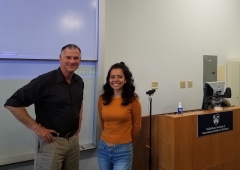Tangut Degfay: On Freedom
| by Eva Gudbergsdottir
Middlebury Institute student Tangut Degfay shares her story from a remote village in Ethiopia to Monterey with important stops along the way in Norway, Vermont and Japan, and the transformative role education has played in her life.


